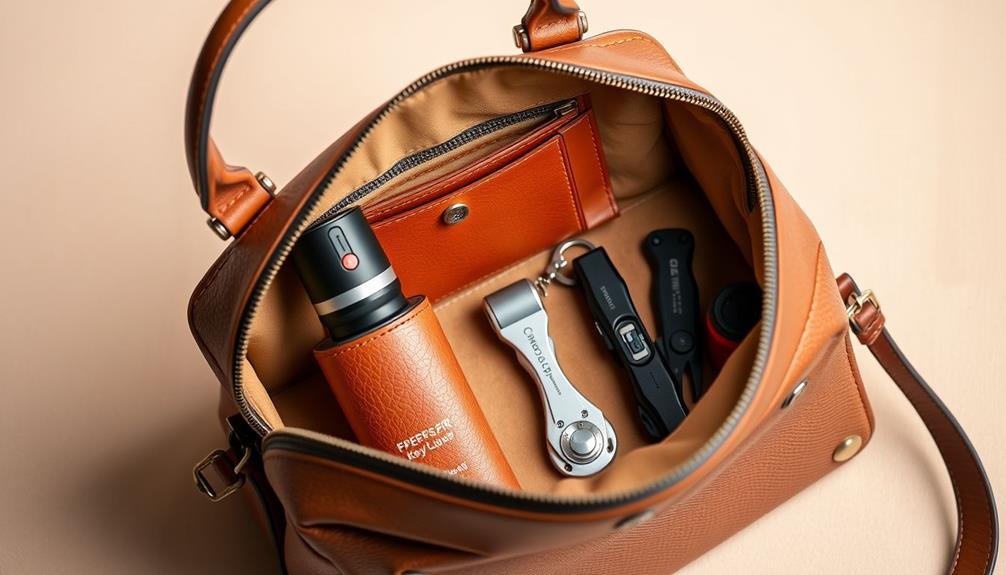If you're prepping, you should steer clear of states like California, New York, and New Jersey. These states have restrictive gun laws and hefty tax burdens that limit your personal freedoms. Frequent natural disasters, like earthquakes in California and hurricanes in Florida, can disrupt your plans. Take into account the social and political climates as well; places like Massachusetts have regulations that hinder homeschooling. States like North Dakota pose severe winter challenges that affect food production. There's much more to take into account, so exploring further will give you a better picture of where to set up your prepper lifestyle.
Key Takeaways
- California has stringent gun laws and faces frequent natural disasters, complicating preparedness efforts for preppers.
- New York's SAFE Act and high taxes create an unfavorable environment for self-sufficiency and personal freedoms.
- New Jersey imposes exorbitant property taxes while having restrictive gun laws, making it challenging for preppers to thrive.
- Florida experiences social instability and frequent hurricanes, posing risks to safety and long-term survival plans.
Gun Laws and Personal Freedoms
When it comes to prepping, steering through gun laws and personal freedoms can make or break your efforts, especially in states like California and New York where stringent regulations severely limit your options.
In California, you face a labyrinth of laws that restrict ownership and usage, making it tough to defend your home or stock up on necessary supplies.
New York's SAFE Act imposes similar hurdles, fostering an anti-gun climate that discourages personal defense.
States like Massachusetts and New Jersey also complicate your prepper plans with confusing and restrictive regulations. If you live in these states, it’s important to do thorough research and understand the laws regarding prepping and emergency preparedness. Additionally, it may be helpful to connect with local prepper groups and communities to navigate the regulations and find affordable prepping strategies that comply with the laws. Despite the challenges, it is still possible to be prepared for emergencies while staying within the confines of the regulations.
If you value personal freedom and autonomy in your prepping journey, these states can feel more like hindrances than havens.
It's crucial to research thoroughly before committing to a location.
Natural Disaster Risks
Natural disaster risks in certain states can considerably impact your prepping strategy and overall safety.
In California, you're facing earthquakes and wildfires, which can disrupt your plans in an instant.
Florida's hurricanes and sinkholes present constant threats, making it hard to maintain a secure homestead.
New York's coastal hurricanes and brutal winters can hinder your outdoor survival efforts, while Massachusetts' harsh winters discourage essential prepping activities.
Kansas brings tornadoes that can obliterate your investments, and North Dakota's severe winters complicate agriculture and daily living.
When selecting a state, consider these natural disaster risks carefully; they can make or break your preparation efforts and your peace of mind.
Stay informed and choose wisely to safeguard your future.
Economic and Infrastructure Challenges

Economic and infrastructure challenges can considerably hinder your prepping efforts, especially in states where poverty rates and unstable job markets prevail.
In Mississippi, for instance, high poverty levels and poor infrastructure can restrict your access to resources and limit your long-term planning.
North Dakota's boom-bust economy may offer temporary opportunities, but it's hard to rely on a job market that could collapse.
Kansas faces economic instability with significant state debt, making financial security difficult.
In New Jersey, high property taxes can drain your resources, while notorious traffic congestion complicates emergency evacuations.
Finally, Colorado's urban influx could lead to regulations that threaten your freedoms, making it tough to prepare effectively.
Choose wisely to guarantee your prepping remains viable.
Social and Political Climate
The social and political climate in certain states can greatly impact your ability to prep effectively and maintain self-reliance.
In states like Florida, social instability and crime can threaten your safety, while New York's urban dominance stifles rural freedoms.
Massachusetts imposes restrictive regulations that complicate homeschooling and personal autonomy, making it tough for preppers to thrive.
Colorado's liberal policies and urban influx may shift local regulations against prepper values.
Meanwhile, Kansas faces a political divide that could lead to unfavorable laws for those seeking self-sufficiency.
When choosing your prepper location, consider how these social and political factors might hinder your efforts to achieve independence and security.
Weather and Environmental Conditions

Weather and environmental conditions can greatly impact your preparedness efforts, making it essential to choose a location that supports your goals rather than hinders them.
States like California and Florida face frequent natural disasters, from wildfires to hurricanes, which can disrupt your plans.
North Dakota's severe winters and short growing seasons complicate food production, while Mississippi's unpleasant weather conditions can deter long-term living.
Colorado's harsh winters can also challenge your survival strategy, especially if urban regulations limit your options.
Each of these states presents environmental obstacles that can undermine your preparedness, so it's vital to reflect on how the climate and weather patterns affect your ability to thrive in a crisis.
Choose wisely to enhance your chances of success.
States With High Tax Burdens
High tax burdens can greatly affect your financial stability as a prepper, making it essential to take into account states where taxes eat into your resources.
Here are some states you might want to avoid due to their high tax rates:
- New Jersey: Known for exorbitant property taxes that can drain your budget.
- California: High income tax and sales tax can quickly add up.
- New York: State and local taxes are among the highest in the nation.
- Connecticut: High taxes on income and property can limit your financial freedom.
Choosing a state with lower tax burdens can help you allocate more resources towards your prepping goals.
Urban Vs. Rural Preparedness

Urban and rural environments present unique challenges and advantages for preppers, requiring tailored strategies for effective preparedness.
In urban areas, you'll face high population density, making it harder to secure resources and escape during emergencies. Limited space can restrict your ability to grow food or store supplies.
On the other hand, rural settings offer land for self-sufficiency and isolation, but you must consider factors like access to medical care and potential natural disasters. You'll need to plan for longer response times in emergencies.
Ultimately, whether you're in the city or the countryside, understanding the local climate, laws, and resources is essential to creating a robust preparedness strategy that fits your specific environment.
Frequently Asked Questions
What States Have the Best Prepper-Friendly Communities?
If you're looking for prepper-friendly communities, consider states like Idaho, Montana, and Texas. These areas offer strong gun rights, lower population density, and supportive local cultures that prioritize self-reliance and preparedness. You'll thrive there.
Are There Online Resources for Prepping in Challenging States?
Imagine steering through a stormy sea; online resources like forums, blogs, and YouTube channels can guide you through prepping challenges. You'll find valuable tips and community support to bolster your skills and confidence in tough environments.
How Can Preppers Network With Others in Restrictive States?
To network with others in restrictive states, join online forums, attend local meetups, or connect through social media groups. Sharing experiences and resources can build a supportive community that enhances your prepping efforts and knowledge.
What Are the Best Survival Skills to Learn in Urban Areas?
In urban areas, you should learn self-defense, urban gardening, water purification, basic first aid, and resourcefulness. These skills empower you to adapt, survive, and thrive in unpredictable environments, maximizing your preparedness and resilience.
How Do I Choose a Safe Retreat Location Within a Risky State?
When the rubber meets the road, you'll want to prioritize location, accessibility, and natural resources for your retreat. Assess local laws, community resilience, and disaster risks to guarantee a safe haven amidst uncertainty.
Conclusion
In your quest for self-sufficiency, it's essential to recognize which states can hinder your preparedness goals.
While some might argue that any location can be adapted to, the reality is that restrictive laws, frequent natural disasters, and unstable economies can create significant barriers.
Imagine trying to build your homestead in a flood zone or maneuvering layers of regulations just to own basic survival tools.
By avoiding these challenging states, you can better secure your future and thrive as a prepper.










